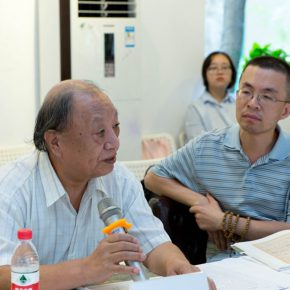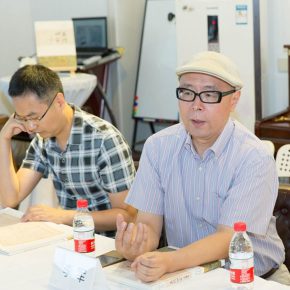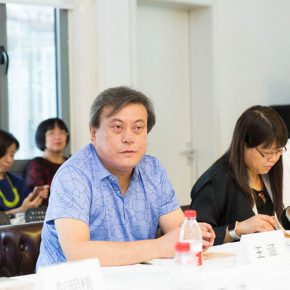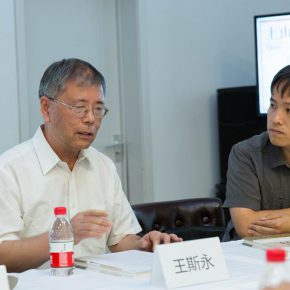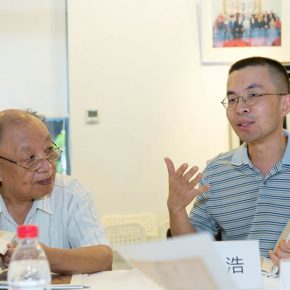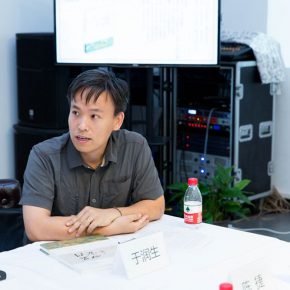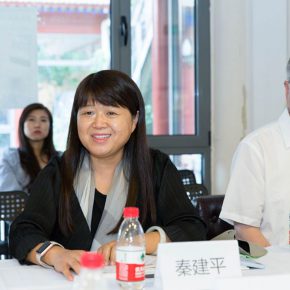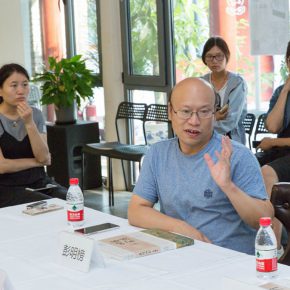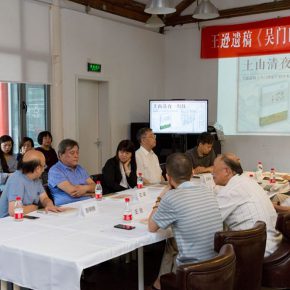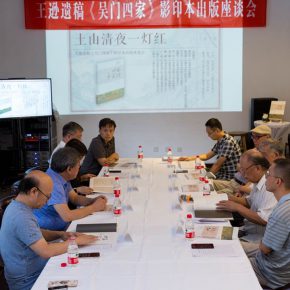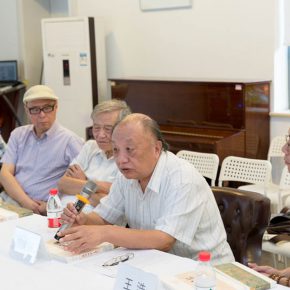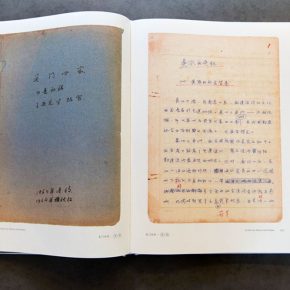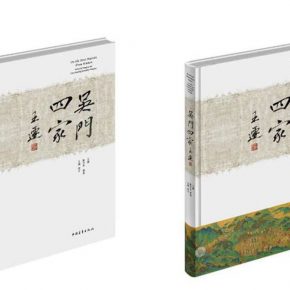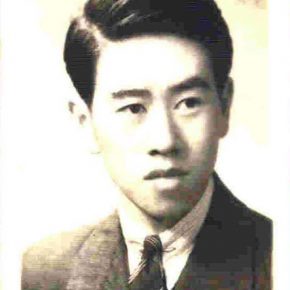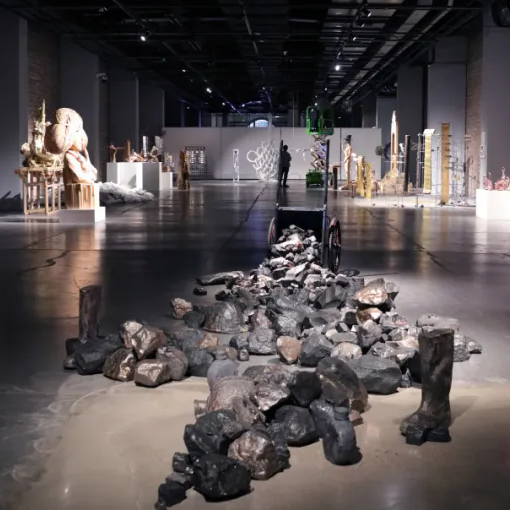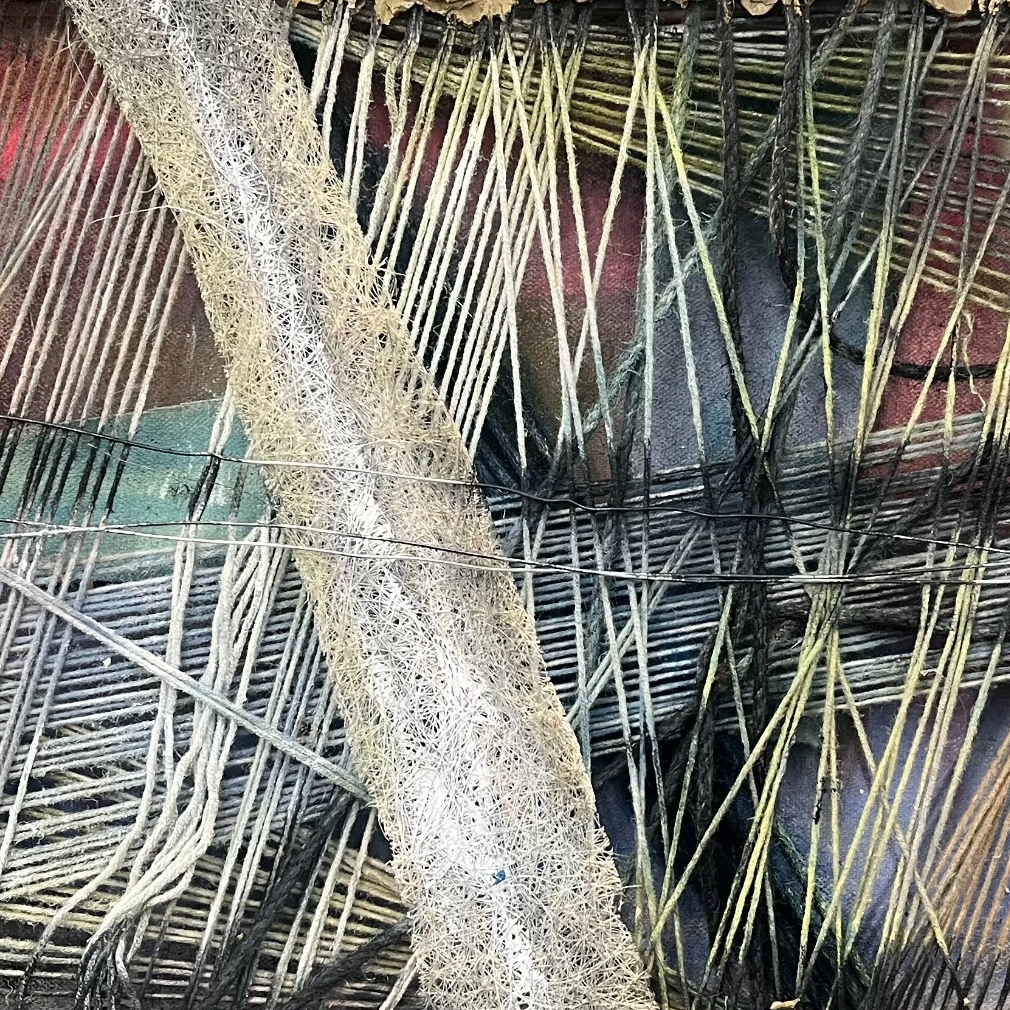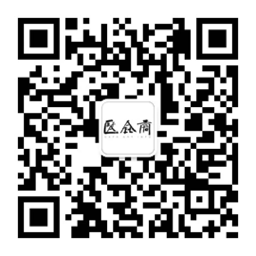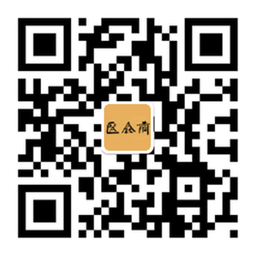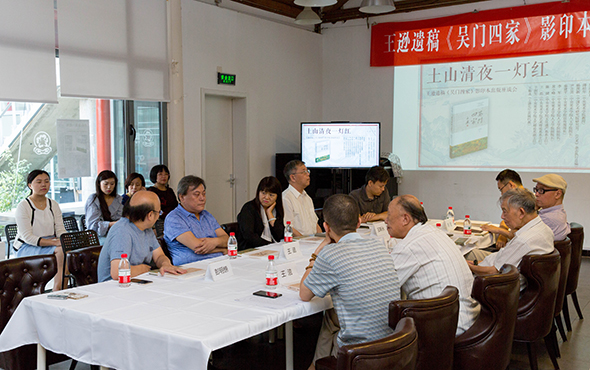
Wang Xun (1915-1969) was a famous art historian & art theorist in China, he directed the establishment of the Department of Art History, CAFA, in 1957, when he made a significant contribution to art history when entering the higher education system and it became an independent discipline. However, soon after the establishment of the Department, Wang Xun was mistakenly designated as a rightist, and the academic research results also lost the right to be publicly published, but he still stubbornly adhered to teaching and academic research, laying a pattern and foundation for the development of Chinese art history. In the 1960s, Wang Xun re-wrote the textbooks of “Chinese History of Art” in addition to teaching, but all the texts were destroyed in the “Culture Revolution” before they were finished, and he also suffered brutal persecution, he died in 1969.
The manuscripts were finished and edited into the “Four Masters of Ancient Suzhou”, which is a representative work of the research of the “Four Masters of Ancient Suzhou”, which is one chapter of “Chinese History of Art” preserved by Prof. Chen Shaofeng from Guangzhou Academy of Fine Arts and a student of Wang Xun. Before Chen Shaofeng died, the manuscripts were entrusted to his student Prof. Li Qingquan, who is Dean of the School of Humanities, the Guangzhou Academy of Fine Arts, who has kept them until now. Therefore, the manuscripts do not only carry the special value and significance of the construction of Chinese art history, they are also successively inherited by three generations of art historians, where it reflects a precious spirit of academic inheritance in difficult circumstances.
The remaining manuscripts of “Four Masters of Ancient Suzhou” were recently published by the China Youth Publishing House after being photocopied. On the afternoon of September 23, 2017, Wang Xun’s students and his students’ students including Bo Songnian, Yang Gengxin, Li Jun, Yu Runsheng, Chen Jie, Wang Hao, and Wang Xun’s family members Wang Han and Wang Siyong, Peng Mingbang, the editor who is responsible for “Four Masters of Ancient Suzhou” and Qin Jianping, Minister of the Propaganda Department, CAFA, gathered in “Xiao Zhong Shu Fang” in Beijing to remember the antecessor with the readers, witnessing the publication of the brilliant academic records.
Prof. Bo Songnian from CAFA was Mr. Wang Xun’s assistant, and he recalled Mr. Wang Xun’s writing at that time in detail. The manuscripts of “Four Masters of Ancient Suzhou” are part of the textbook of the “Chinese History of Art” written and edited by Wang Xun at that time. It started from the original, Shang Dynasty, Zhou Dynasty to the Yuan Dynasty, but there were many problems in the political conditions at the time, so that he decided to write the Ming Dynasty, and “Four Masters of the Ancient Suzhou” which was finished within this background. Wang Xun’s family member Wang Han signed with emotion and said that the Department of Art History has developed the School of Humanities, CAFA after 60 years, it was an academic inheritance, and the final work of Wang Xun was finally published. Yang Gengxin, a researcher of China National Academy of Arts, is a student of Wang Xun’s student and also affirmed the significance of the book as it did not only lie in the academic value, but also lies in the humanistic value, and heritage in the history of art. Li Jun, Deputy Dean of the School of Humanities, CAFA affirmed the finishing and publication of the current learning of Wang Xun which was an “archaeology of art history” from the margin caused by searching the house and confiscating the property in the period of Culture Revolution. Wang Xun’s knowledge and research was closely linked to the New Culture Movement and Modern Chinese history, and he directed the establishment of the Department of Art History which was a torchlight for the new cultural movement, and also the cultural tradition of Chinese art over several thousand years. Yu Runsheng, Deputy Party Secretary of the School of Humanities, CAFA, and convener of the “Wang Xun’s Forum of Art History”, introduced the work of organizing, research and promotion of the research results of Wang Xun, while he also encouraged and supported young art historians in research and trials.
“One light of the hill hut in a coal night”, Mr. Wang Xun lived in two huts in the west side of the old CAFA’s campus in Xiaowei Hutong, on a hill near the Dong’an Market at that time, he finished his research and writing, and laid the foundation of the subject of history of art. Now, the only surviving manuscripts of “Four Masters of the Ancient Suzhou” were published, in the words of Peng Mingbang, the editor who is responsible for “Four Masters of Ancient Suzhou”, where the reader cannot only receive historical information, see a history of an art historian, but also learns something of the research and evaluation of “Four Masters of Ancient Suzhou”, from the perspective of history of art.
Text and photo by Zhang Wenzhi, translated by Chen Peihua and edited by Sue/CAFA ART INFO



